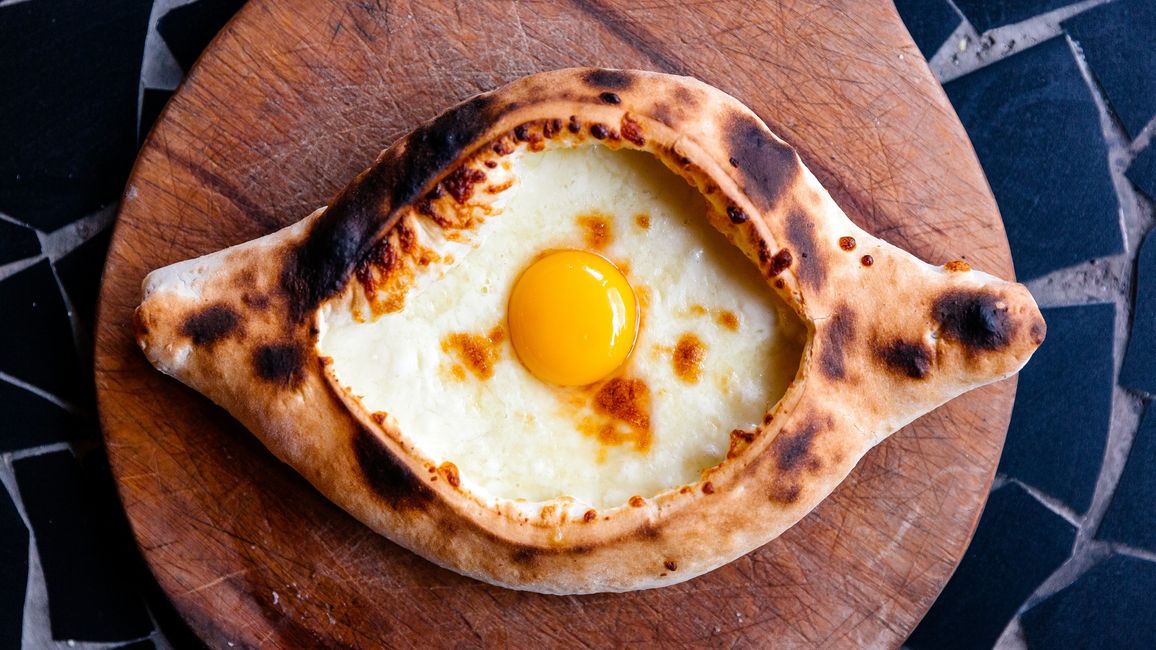Don Curry and the Russian soldier
Lolomiina: 06.07.2023
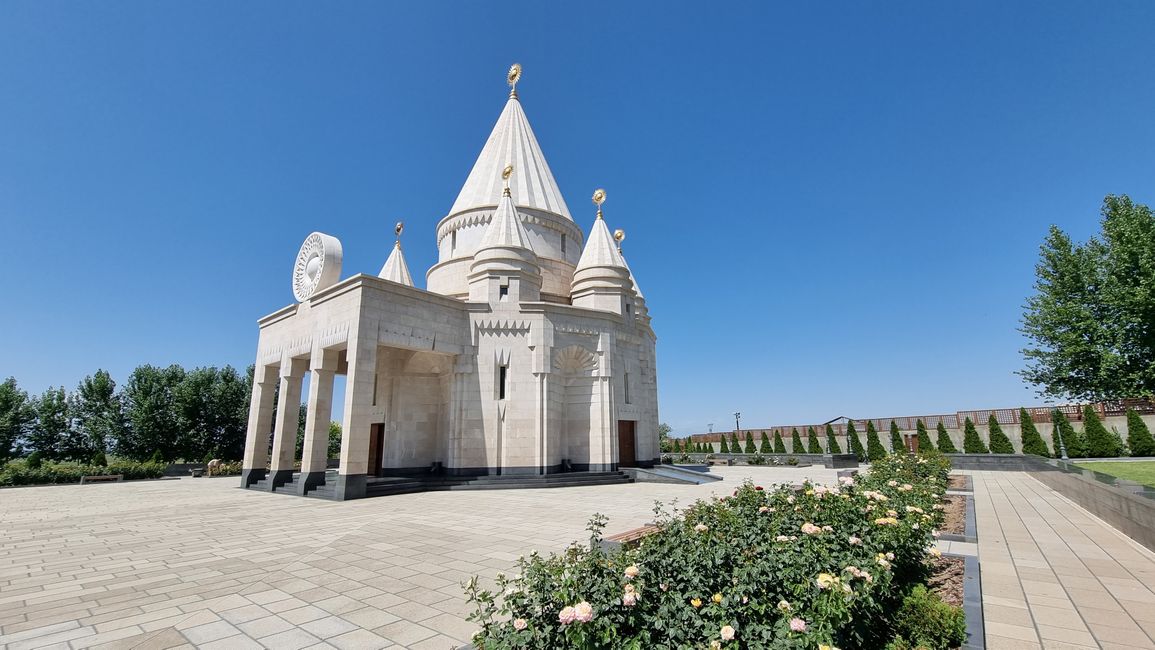
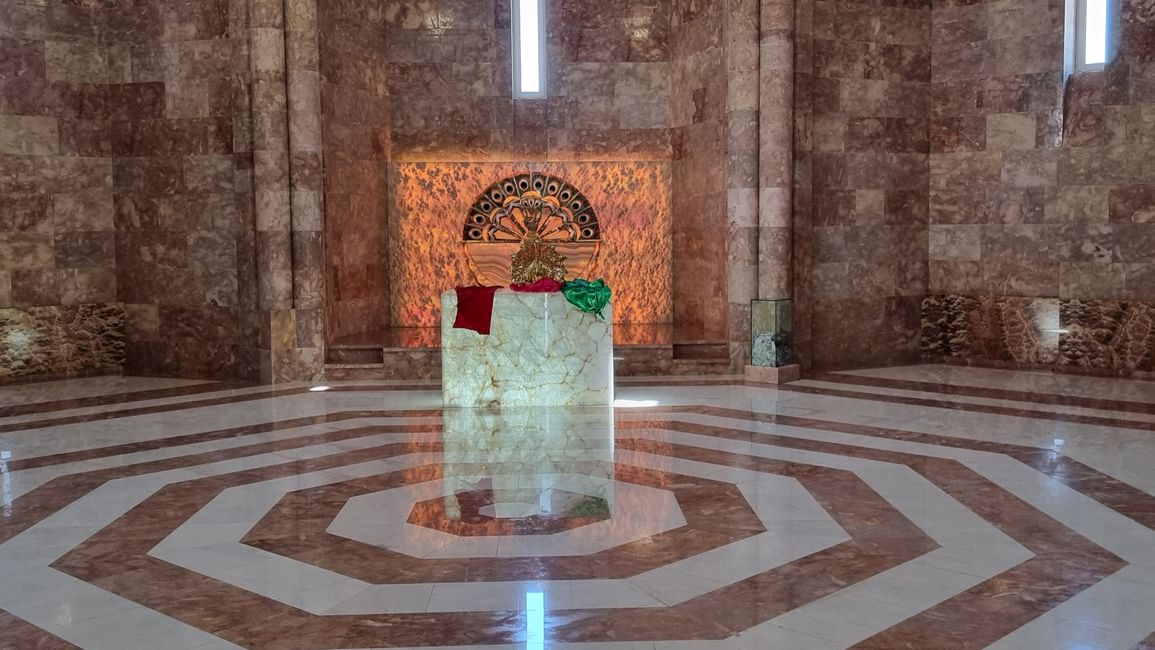
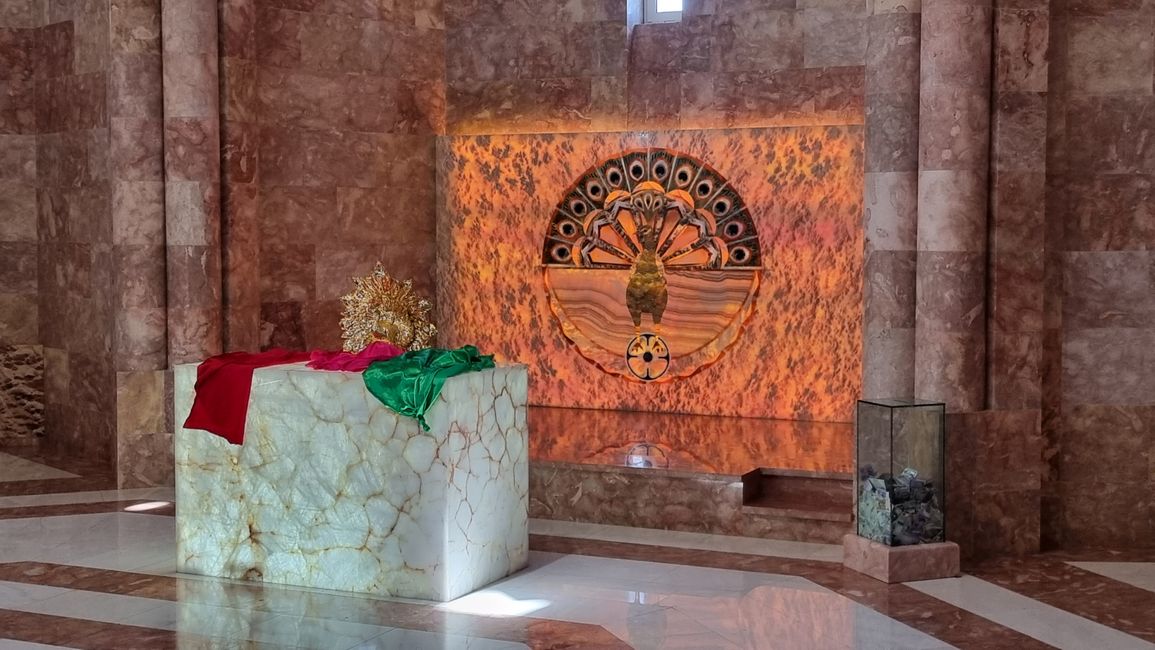
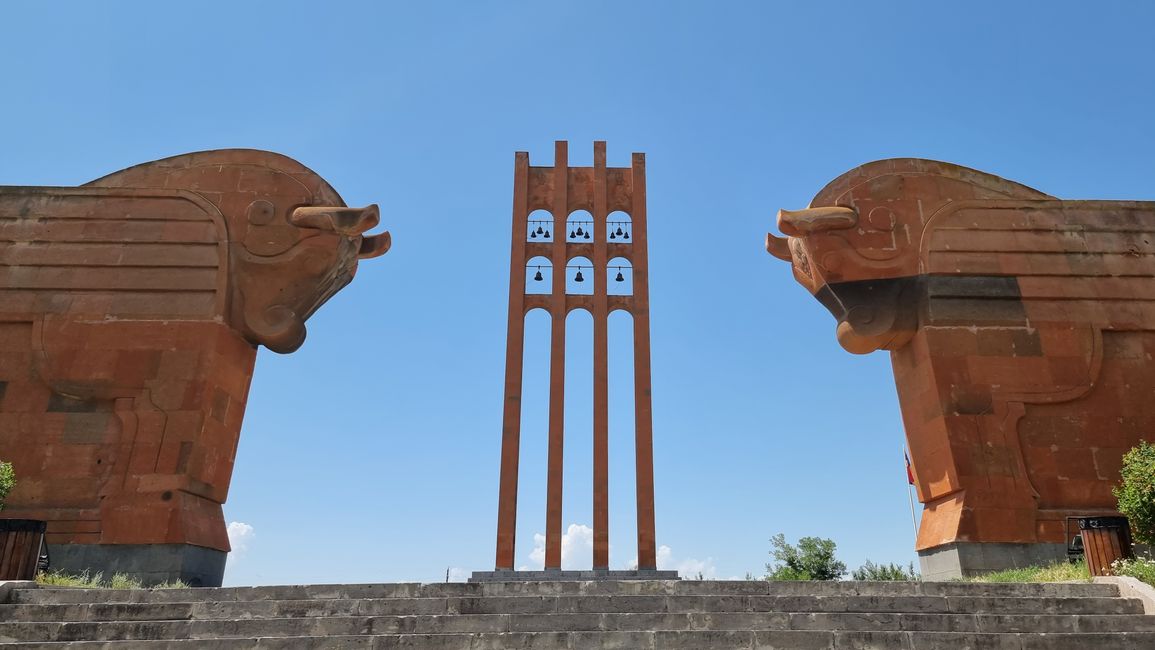
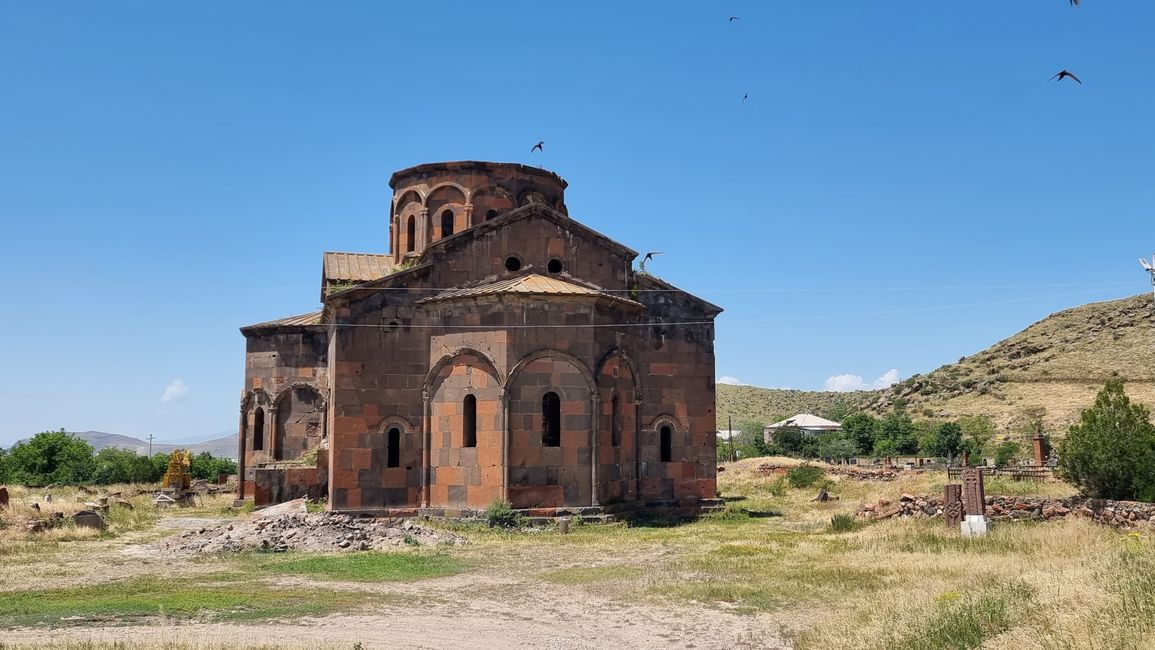
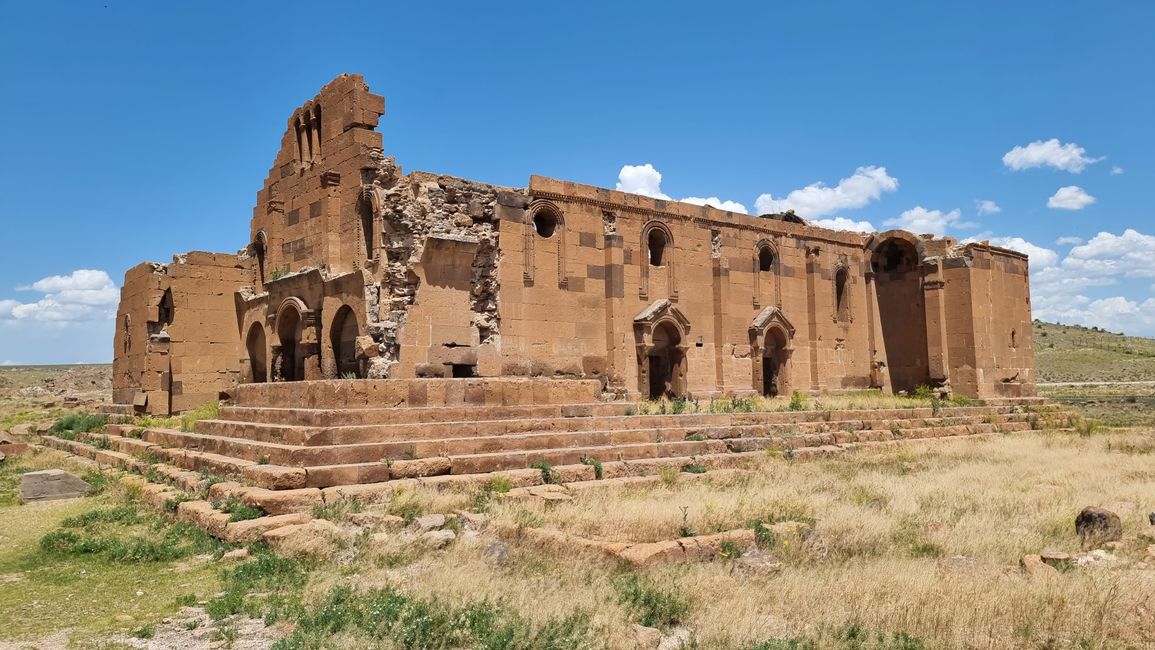
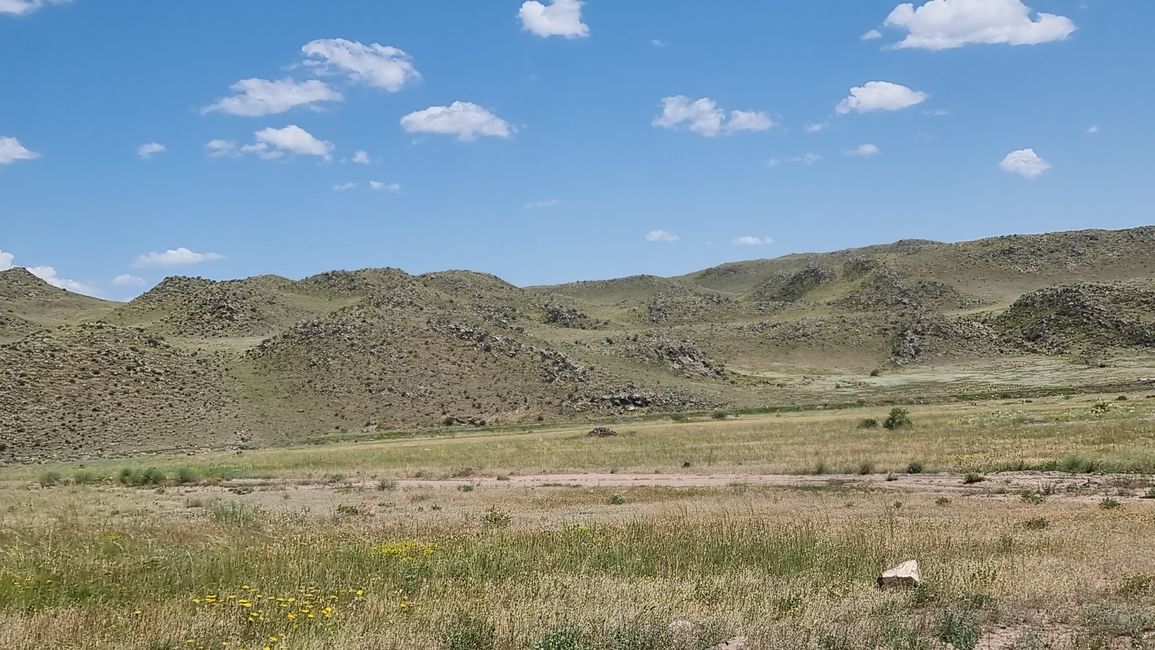
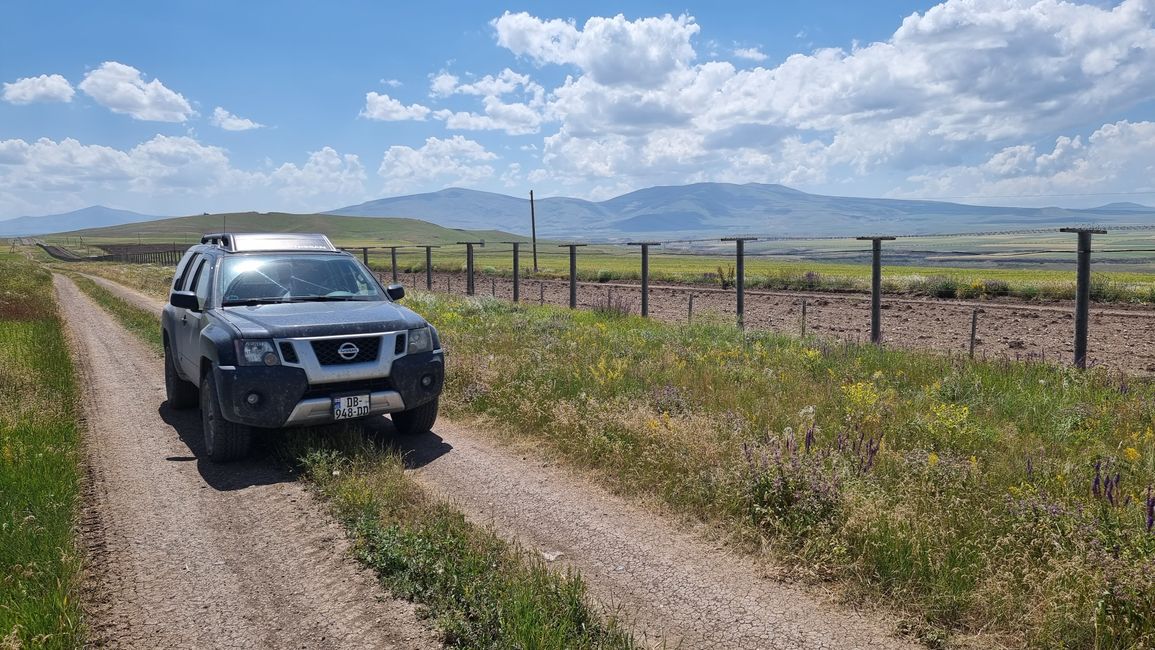
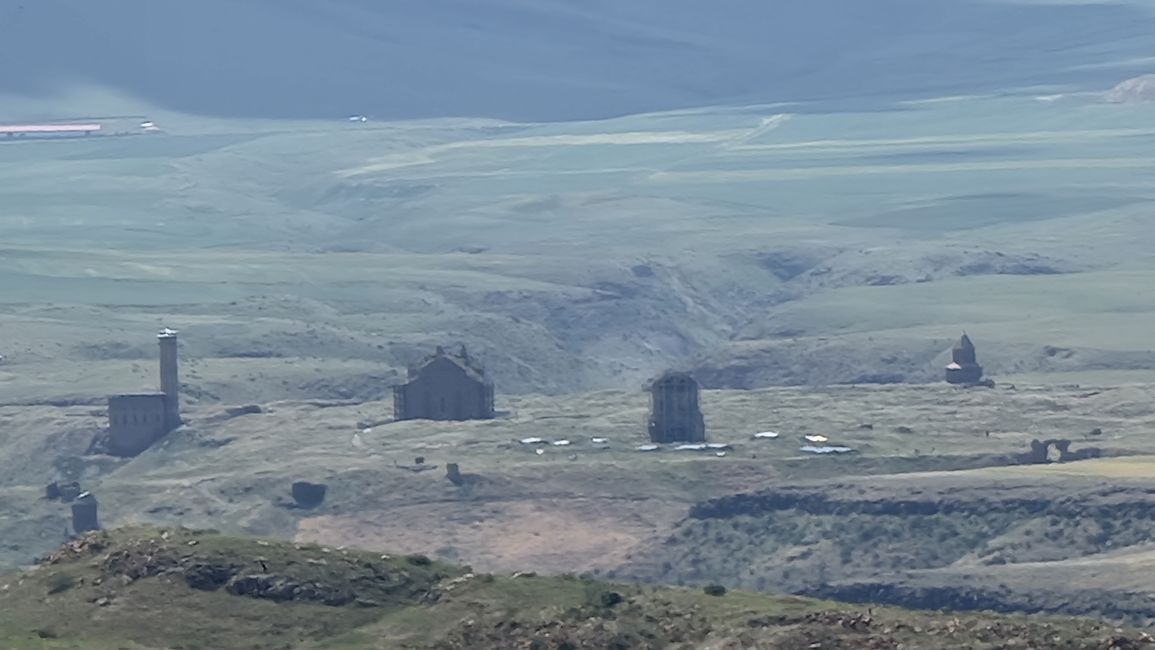
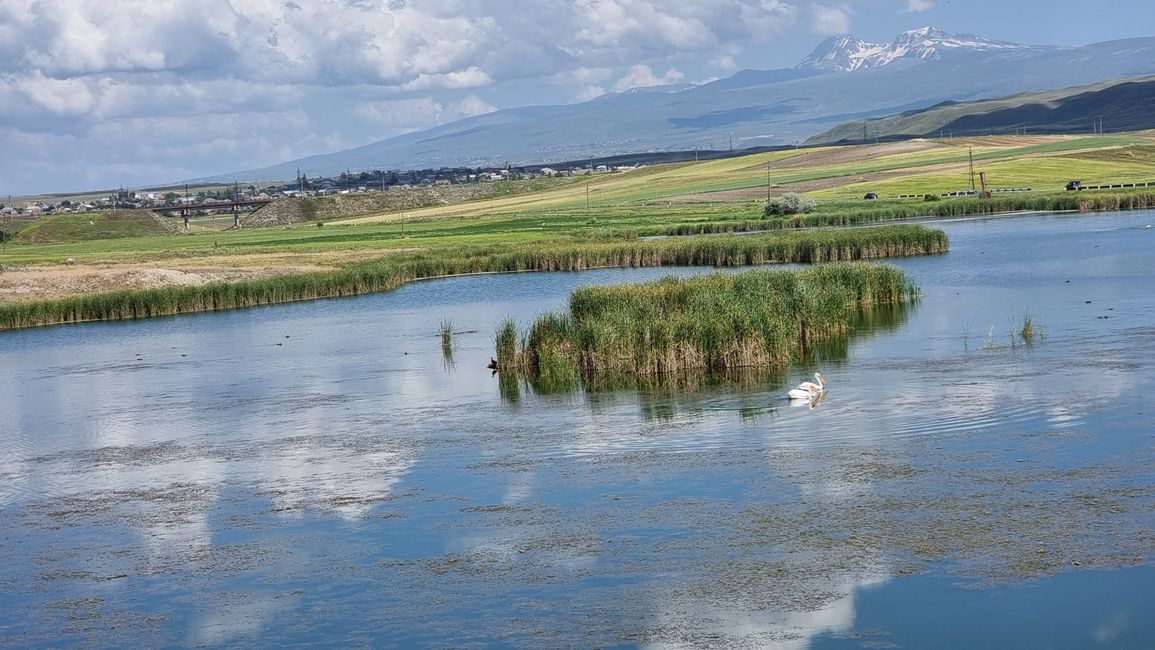
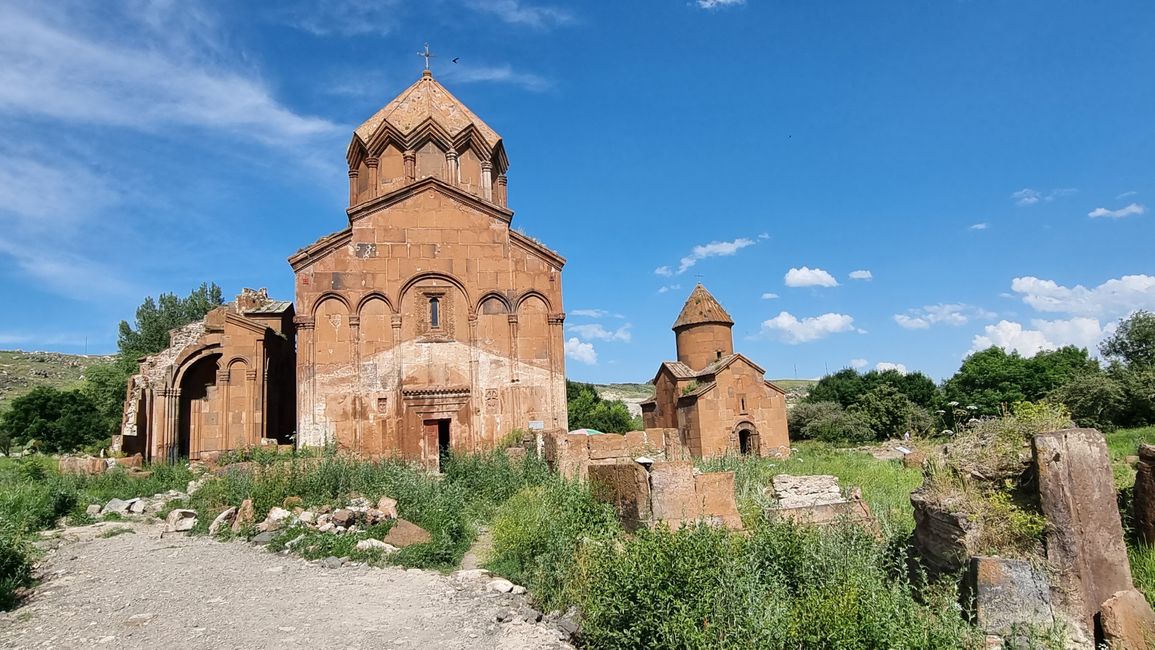
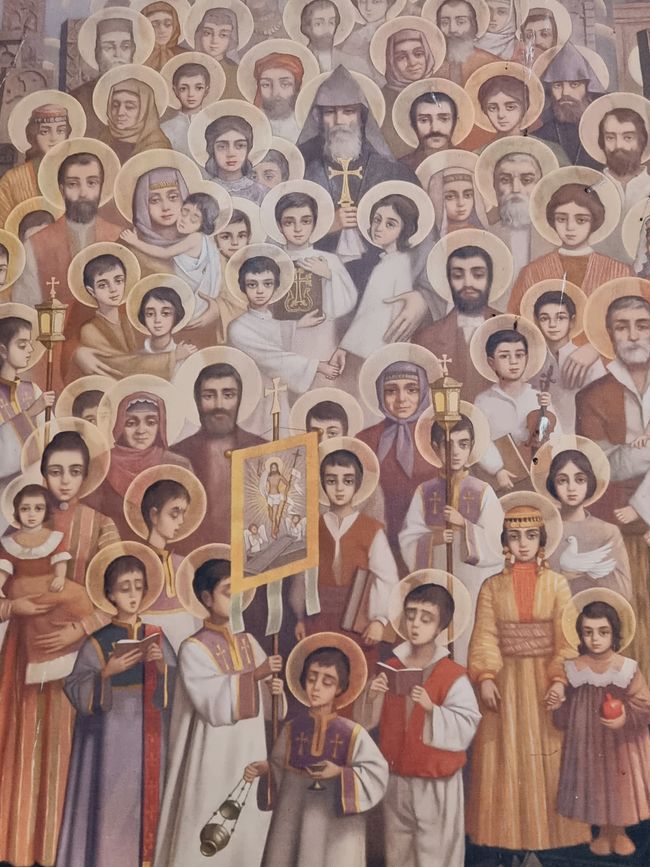
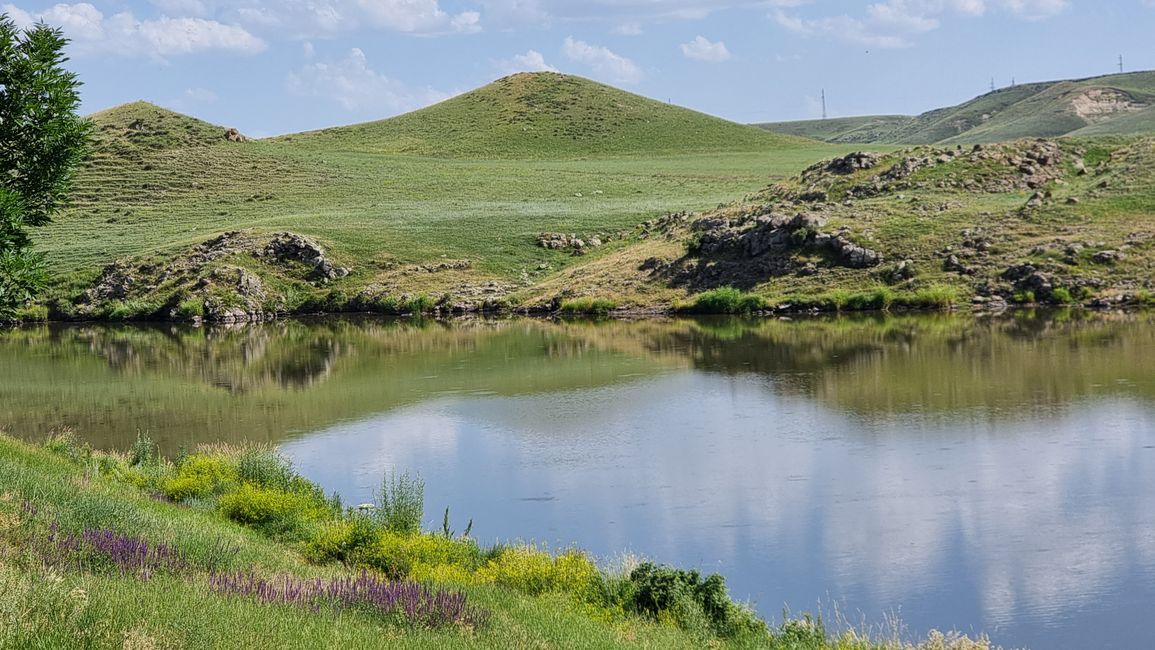
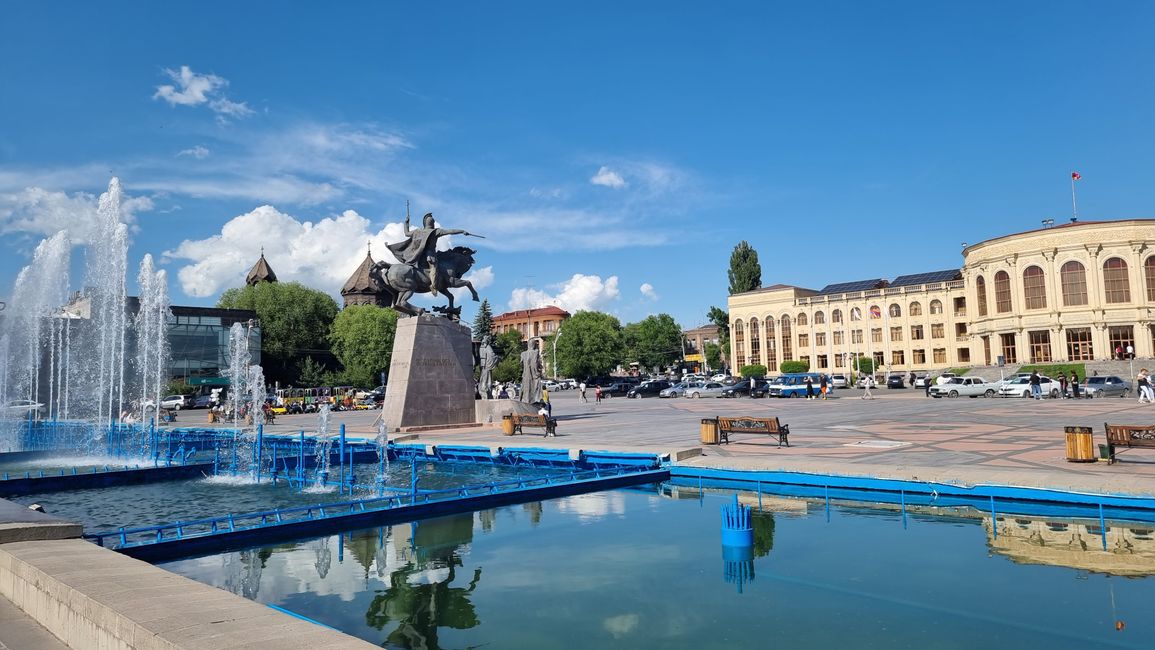
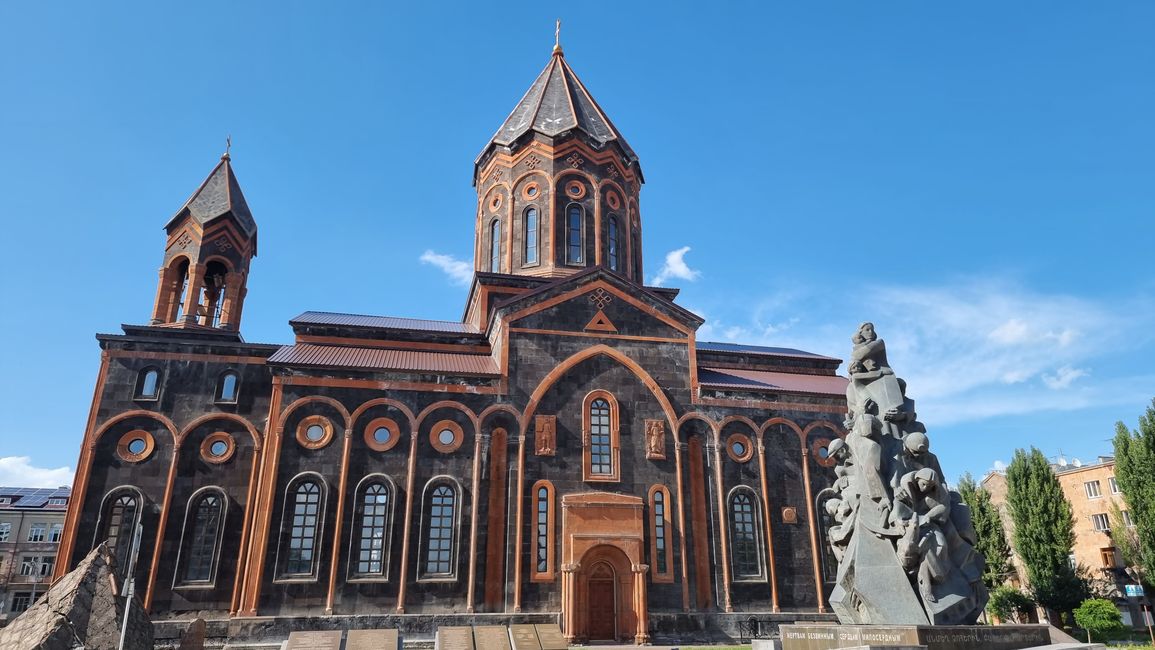
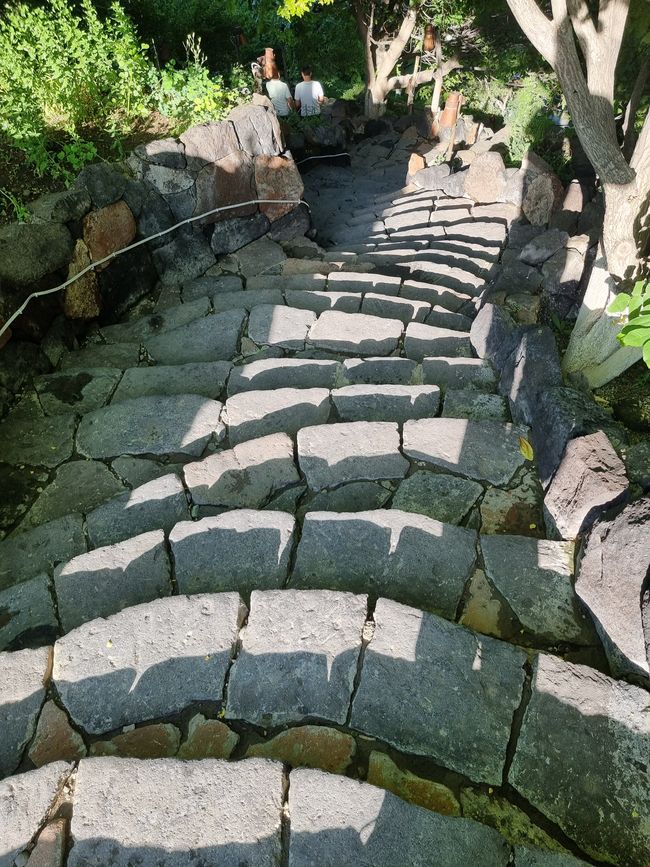
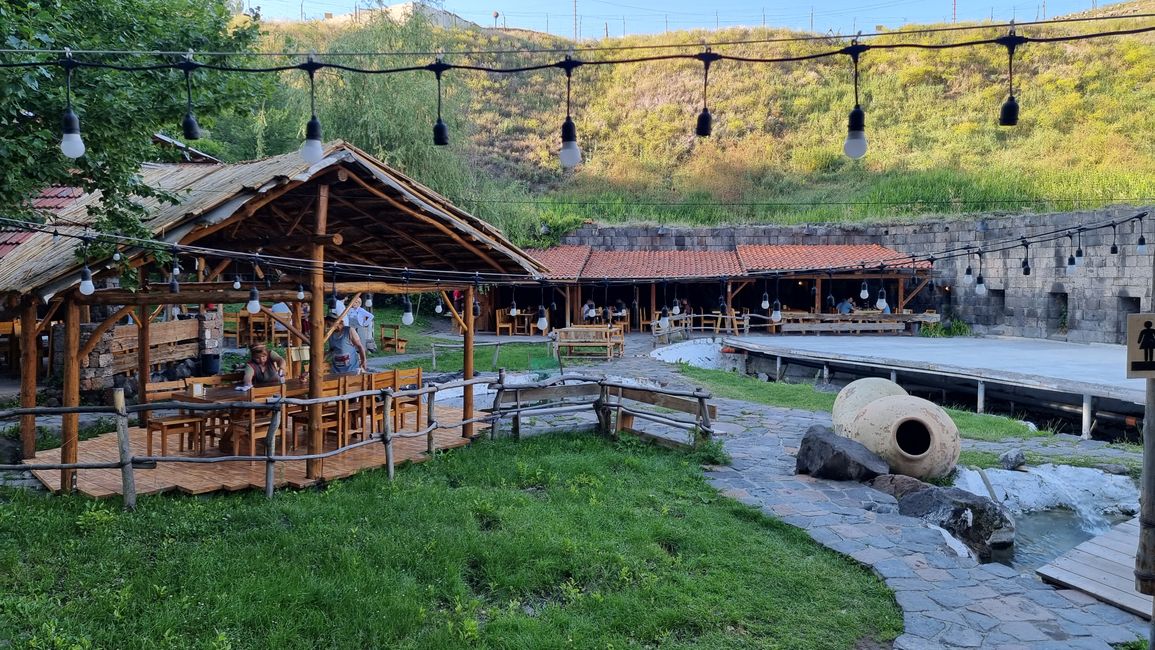
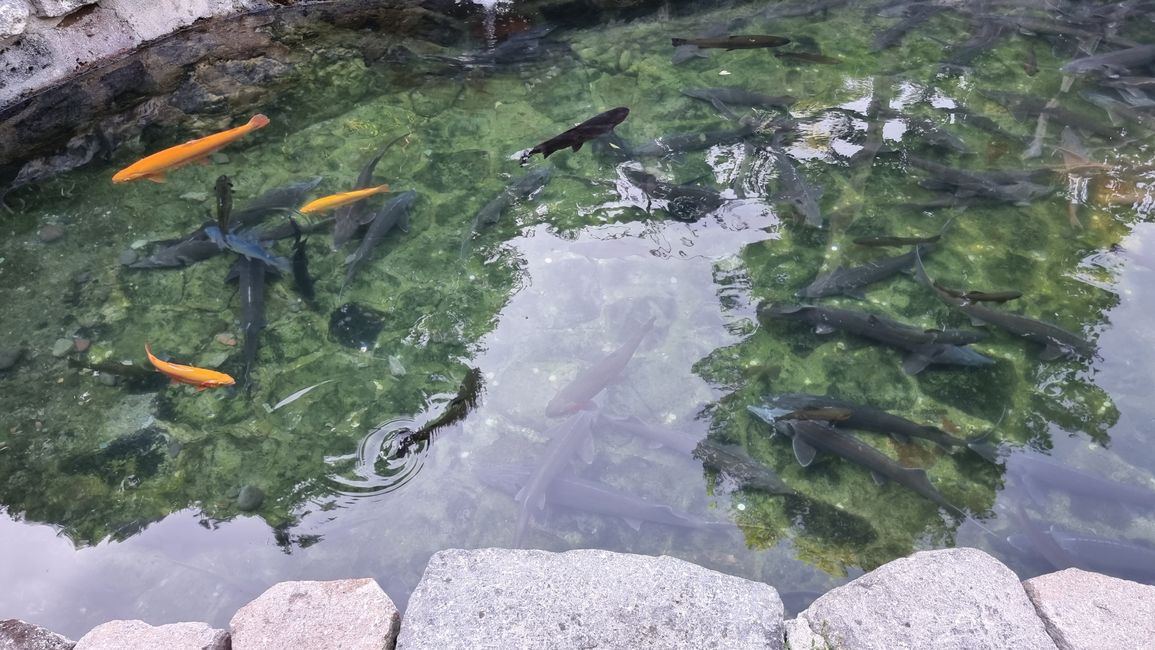
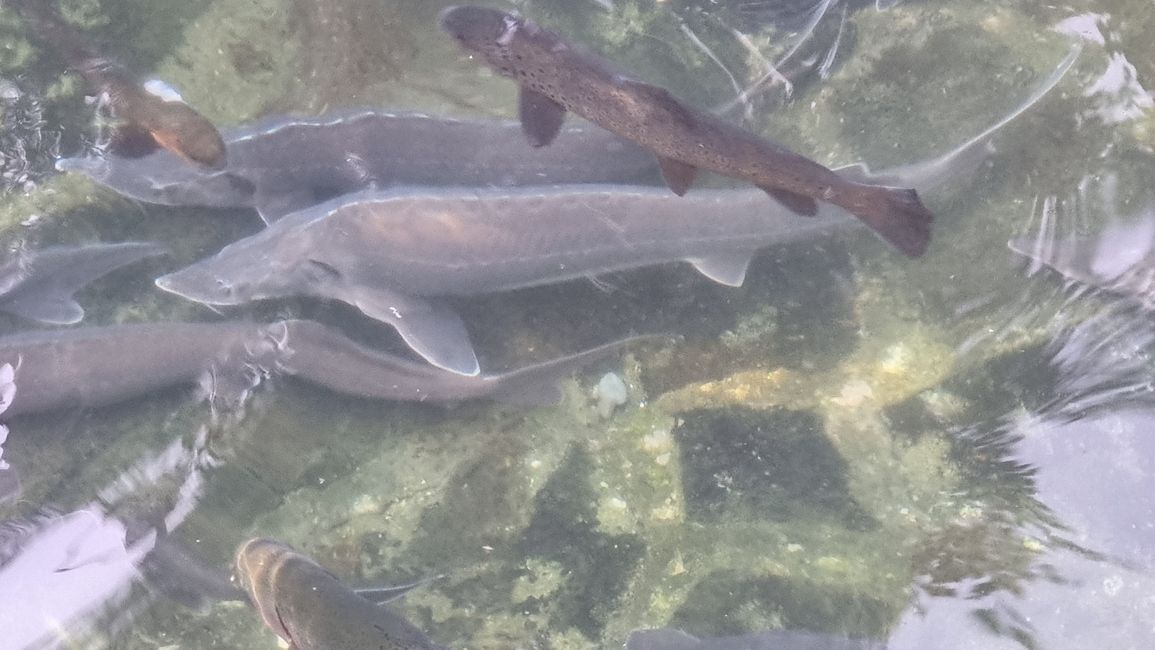
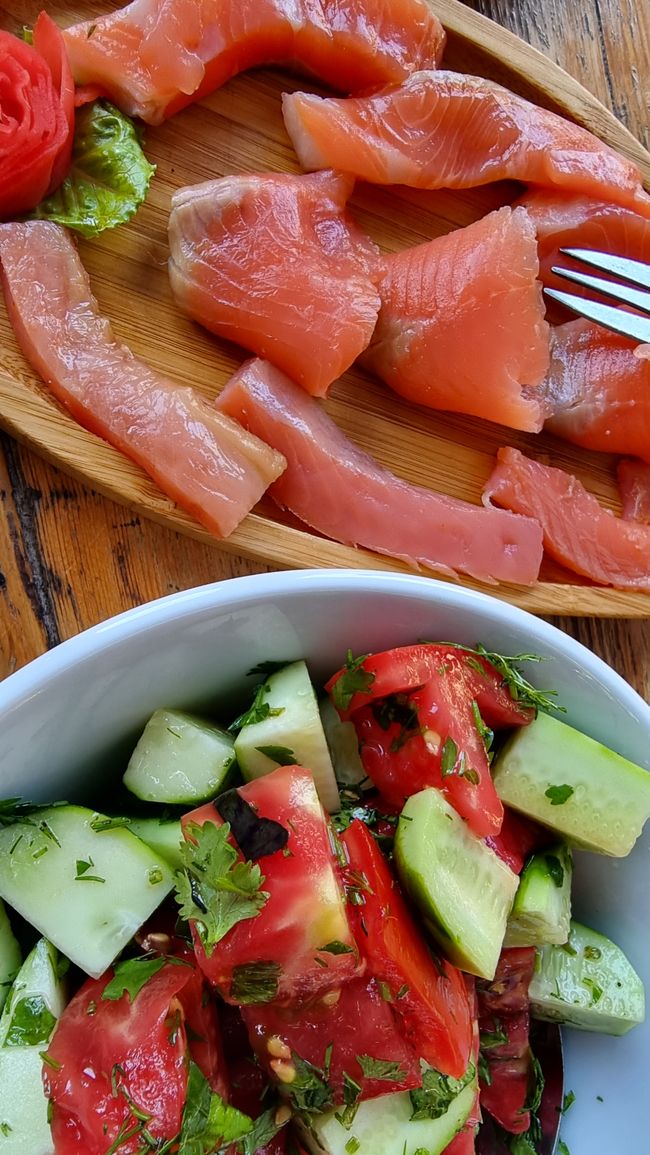
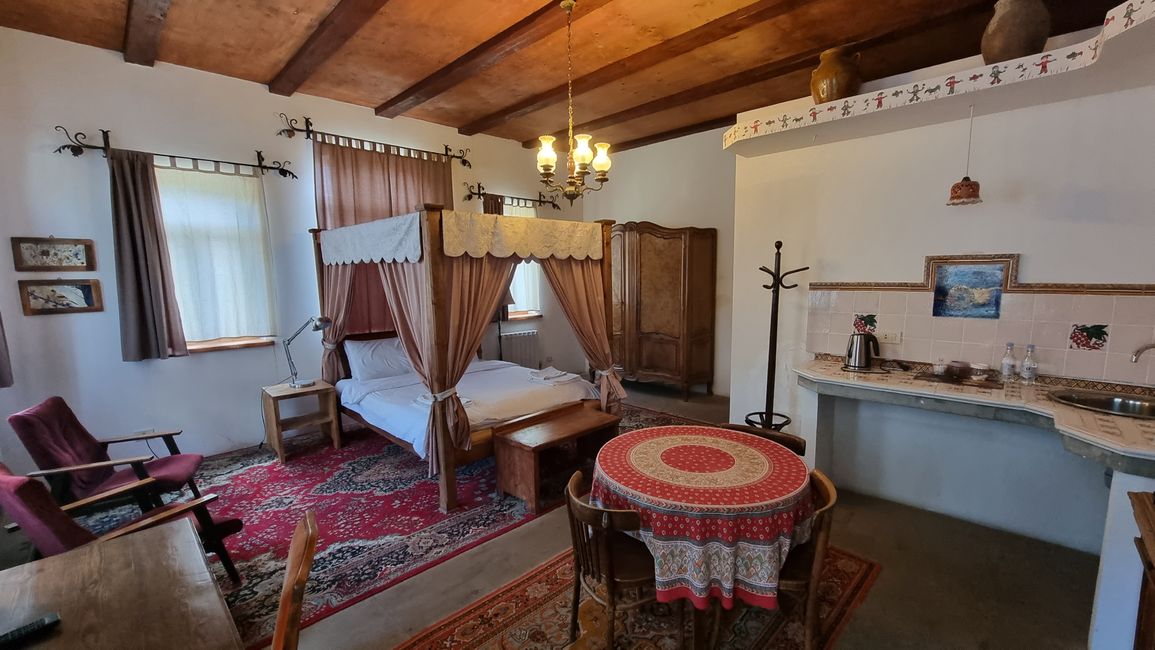
Fa'asoa ile Newsletter
Don Curry is not surprised that there are constantly surprises on his travels. Even the best planning and preparation cannot prevent this. And it shouldn't. Surprises are the umami of travel, the refined spice that makes something good even better. However, there are different types of surprises. There are the absolutely positive ones, like when Don Curry gets a room upgrade at the hotel; but there are also the absolutely negative ones, like when Xerra's tire suddenly goes flat. And then there are surprises that are so surprising that you can't really categorize them.
The breakfast buffet at the 14th Floor Hotel no longer offered any surprises. It delivered the same high quality every day, only the variety of the two juices changed daily. Since Don Curry was leaving Yerevan heading west, he also planned a short stop at the Cathedral of Echmiadzin. In the end, there was no surprise there: it was just as closed as on Sundays, without any apparent reason.
But then Don Curry came across a real surprise. In the village of Aknalich, west of Echmiadzin, there was supposed to be a Yezidi temple. Don Curry didn't know much about this religion, only that it is persistently persecuted by radical Islamists. What would a Yezidi temple look like? On a bad road, Don Curry approached a plot of land on the outskirts of the village. When he got out of Xerra and stepped through a gate, the ambiance of dusty roads and backward Armenian villages was immediately forgotten. Suddenly, he felt like he was on the grounds of a millionaire's villa: properly trimmed lawns, marble statues, several gleaming white buildings, well-kept flower beds focused on roses, and at least three gardeners who were currently working on the premises. In addition, there were cast iron benches and matching elegantly designed waste bins. Don Curry paraded along the row of statues, which depicted important personalities of the Yezidi faith, as well as the Armenian composer Komitas and a young girl representing the IS pogrom of 2016 in Iraq. In a small burial chapel of a Yezidi dignitary, Don Curry discovered two stuffed peacocks, one doing a cartwheel and one at rest. In front of the door to the towering temple, Don Curry saw several meter-long shoe horns; from this he concluded that all footwear must be removed when entering the temple. The interior of the temple radiated simplicity and grandeur at the same time. All surfaces were gleaming marble, an altar made of rock crystal illuminated from within and adorned with a golden peacock statue. In the red wall behind it, an oversized stylized peacock sculpture had been embedded. There was nothing else in the room, no seating, no liturgical instruments, no icons or depictions of gods. In the pointed dome, the image of an abstracted sun was displayed. Here, a friendly and life-affirming faith was practiced, Don Curry was sure. But it also became clear that a lot of money was and is necessary to create and maintain this facility. Next to it is a Yezidi cemetery, which includes life-size portraits of the deceased as well as several covered sitting areas where people can collectively commemorate the dead.
Similar aspects can be found at Don Curry's next destination, the Armenian National Monument Sardarapat. It is located near the Turkish border, and for good reason. In the Battle of Sardarapat, the Armenians succeeded in defeating a far superior army of the Ottoman Empire, thus stopping the Turkish advance into Armenian territory. A huge bell tower-like column commemorates this fateful moment in the nation's history. Two oversized winged bulls symbolize the tolerance and strength of the Armenian people. Right next to it is a memorial cemetery for the heroes of the various conflicts that Armenia has experienced since then. Soldiers who lost their lives, especially in the struggle with Azerbaijan, were buried here, up to and including the year 2022. Particularly moving is the grave of a set of twins who both died as soldiers in 2020.
The next two destinations led Don Curry to a more distant, but at the same time more positive past. The Cathedral of Talin and the Basilica of Jereruk, although only as ruins, have survived the test of time, testifying with their magnificent architecture and sheer size to the former power and importance of Armenia. While Jereruk once had a central position in the Armenian Kingdom near the old capital Ani, it is now completely remote, located at the last place before the impenetrable Turkish border.
However, Don Curry wanted to get closer to this border. In a guidebook, he read that there are two places from which one can catch a glimpse of the ruins of Ani. Two years ago, Don Curry wandered through the extensive ruins of Ani during his journey through Anatolia and back then he looked curiously towards Armenia. Today, he wanted to look back. He knew that it would not be easy, as the best view starts from the Armenian village of Charkow. However, this village is already in a military restricted area. One could still try, the guidebook encouraged, to politely ask the border guards for permission to continue. That's exactly what Don Curry planned to do. And which Armenian soldier could resist the argument that one absolutely wants to see the old capital Ani?
On increasingly bad roads, Don Curry approached a gate leading to an area completely separated by high barbed wire fences. He got out and approached the gate. From a watchtower, a young soldier with a black shepherd dog came to the other side of the gate and spoke to Don Curry. He was about to ask about his knowledge of English and then present his convincing Ani argument when he recognized the flag on the border guard's uniform. In front of him stood... a Russian soldier! What is a Russian soldier doing here on the border with Turkey? Didn't Russia have completely different problems at the moment? Of course, Don Curry knew that Russia is still considered Armenia's most important protector. But did Russian soldiers have to protect Armenia from the Turks? Or maybe the other way around? The conflict with neighboring Azerbaijan was developing much more threateningly. But in that case, Russia preferred to look the other way instead of actively helping and consistently supporting Armenia. - All of this went through Don Curry's mind when he unexpectedly stood face to face with a Russian. He had to forget his argument appealing to the Armenian national consciousness here.
The border guard demanded Don Curry's passport and something else. He handed over his passport; it was attentively studied and recognized as valid. But his counterpart wanted to see another document from Don Curry. He suspected it was an official permit to enter the restricted area, but he preferred to pretend to be clueless. The soldier tried desperately to explain his request to Don Curry. Even the shepherd dog looked at Don Curry expectantly. But he just shrugged. Finally, the young man ran back to his watchtower and fetched a form. The dog accompanied him. Both returned to the gate, and the border guard held out a form in Cyrillic script to Don Curry. He needed this document, the soldier probably explained. Don Curry shrugged again and made it clear that he didn't have such a document. He just wanted to continue driving, this was a road after all. The Russian made an effort again to make the impossibility of this wish clear to him. The shepherd dog looked from one to the other. Don Curry heard loud laughter from the watchtower; his colleagues were probably amused by how the young soldier tried to dismiss the unyielding traveler. He doesn't speak English, the border guard said regretfully. And he doesn't speak Russian either, Don Curry comfortingly replied, and both of them smiled. Don Curry showed again that he just wanted to drive a little further. In the end, he actually had to turn back. Even the shepherd dog looked a little sad, Don Curry thought. But at least, despite all the language problems, a good human encounter had developed. Don Curry enjoyed the fundamental friendliness and openness of the Russian soldier, and hopefully, he had experienced that the inhabitants of the 'West' are not absolutely malicious and deeply anti-Russian subjects, as the state propaganda would have you believe.
Don Curry has little regard for giving up. After all, there is a second place from which a glimpse of Ani is possible, although from a greater distance. For this, he had to follow a dirt road for several kilometers from another village, which in its later course ran directly along the barbed wire fence of the restricted area. No problem for Xerra. Finally, in the far distance, he actually saw the churches, the mosque, and the remains of the city wall - unmistakably Ani. Seemingly so close, and yet absolutely out of reach from Armenia.
Before he checked into his hotel in Gyumri, he drove a little further to the Marmashen Monastery. Another unforgettable surprise was waiting for him there. Unlike most monasteries in Georgia, the Marmashen Monastery is not hidden high on a hill, but hidden deep in a river valley. As soon as he entered the main church, a woman approached him, quickly switching to English and explaining a lot about the monastery and its history. She showed him the ruins of the circular church and the tomb of that medieval architect who had built not only Marmashen but also many churches in Ani. Then she asked Don Curry if she could sing a prayer for him. He had no objections, and she immediately knelt in front of the altar of the monastery church, raised her hands, and sang a very melodic Armenian song with a beautiful voice. With that, the otherwise empty church was filled with a completely different atmosphere; it actually became a house of prayer again. Afterwards, the woman explained that she was an artist and wanted to show Don Curry some of her works. He could not refuse anymore and bought a small item from her. A clever and rather likable sales strategy, Don Curry thought, and kept a good memory of the Marmashen Monastery.
Back in Gyumri, Don Curry first parked at the main square of this second-largest city in Armenia. However, in 1988, it experienced severe destruction during an earthquake. There are still ruins in the city center of buildings that collapsed together back then, and in many places, large-format picture boards show the condition immediately after the earthquake. Next to the Church of the Holy Savior, there is still the church tower top, which landed there when the tower collapsed. Gyumri appears much more tranquil than vibrant Yerevan, and in its center there are still numerous typical Armenian houses made of black basalt stone; most of them in Yerevan have already fallen victim to the constant urge to modernize. Don Curry stayed in exactly such a house two years ago in the city of Kars, which now belongs to Turkey, just over 60 km from Gyumri. The 'Villa Kars,' named after this city, is also such a traditional house. The few rooms of the villa do not follow the globally standardized practical style of hotel furniture, but were each individually and tastefully furnished, as if you were a private guest of a family. In his room 'Botanica,' Don Curry found a canopy bed, antique furniture, a classically tiled kitchenette, and numerous floral decorations. He would love to stay here longer, he immediately thought. But neither the travel plan nor tonight's evening allowed for that.
Because Don Curry had been looking forward to a special dinner all day at a very special restaurant in Gyumri. The 'Cherkezi Dzor' is not only the most famous fish restaurant in Armenia, but it even occasionally attracts Russian oligarchs who like to fly in for dinner there. However, the hospitable place is not so easy to reach. It is located on the outskirts of Gyumri, can only be reached via an almost unbearable dirt road, and also expects guests to descend dozens of steep steps to get there. But as soon as you arrive, you forget all the hardships. The guest area is spread over several rustic folk-style houses and verandas. In the center, there are several water basins filled with trout, sturgeon, and other types of fish. As soon as guests order a specific fish, it is immediately taken out of the water and processed directly. It can't get any fresher than that! In addition, a few years ago, the restaurant set up its own brewery and has been serving its own beers ever since. More than enough reasons for Don Curry to visit this promising restaurant. He was assigned a nice place on a veranda and was provided with two extensive menus. One contained only a wide range of seafood and sushi variations. But Don Curry could do without scallops and shrimp in a country that has no access to the sea. The second menu listed the dishes made from the local fish. Don Curry quickly realized that this posed difficulties for a single guest. At other tables, guests ordered a sturgeon or a rainbow trout for the entire party, along with the corresponding side dishes, from which everyone could help themselves. But Don Curry couldn't very well have half a trout or a quarter of a sturgeon caught for him. Besides, it would have been difficult for him to directly condemn a living creature to death. So he decided on a soup with trout, a summer salad, a plate with various raw, marinated, and smoked pieces of salmon and trout, two lemons, and of course, lavash, the thin flatbread, along with a self-brewed premium pilsner. Everything was extremely tasty and of outstanding quality. In this restaurant, there was even a 'compliments from the kitchen' in advance: fried pieces of lavash with homemade caviar sauce - super delicious! As almost a dessert, Don Curry ordered the second variety from the brewery, a honey beer.
More than satisfied, he returned to his wonderful room. Not everything had gone according to plan today, but the many positive surprises had more than made up for it. Don Curry still enjoyed the friendly border guard, the hard-earned view of Ani, the sung prayer, the delicious fish, and - especially at this moment - his comfortable canopy bed. And he was already looking forward to all the surprises that awaited him tomorrow...
Fa'asoa ile Newsletter
Tali
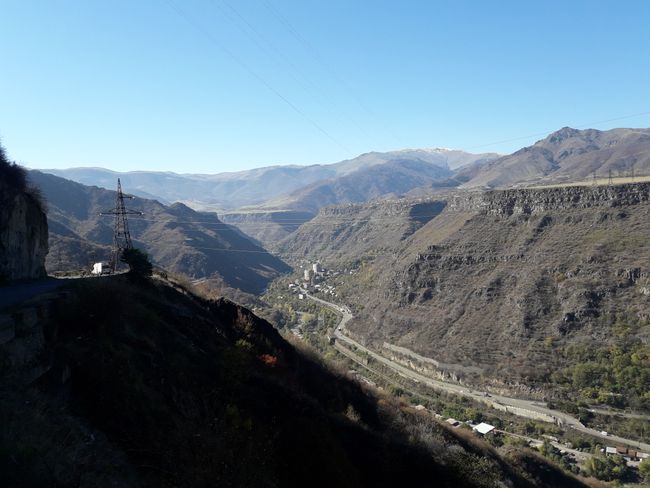
Lipoti o femalagaaiga Armenia

